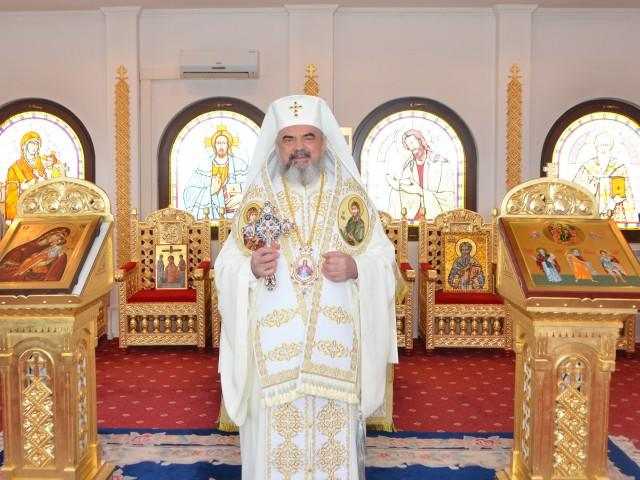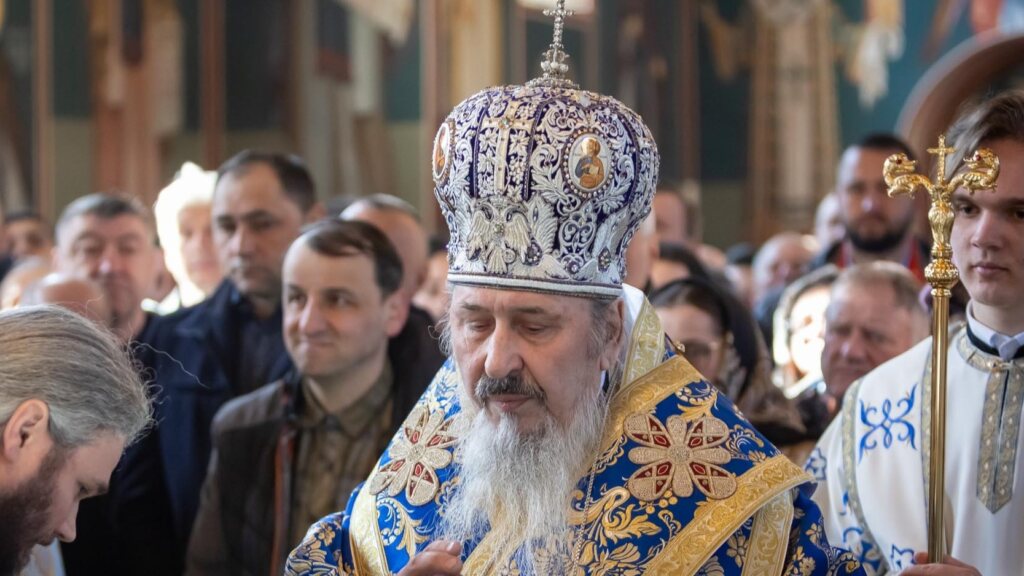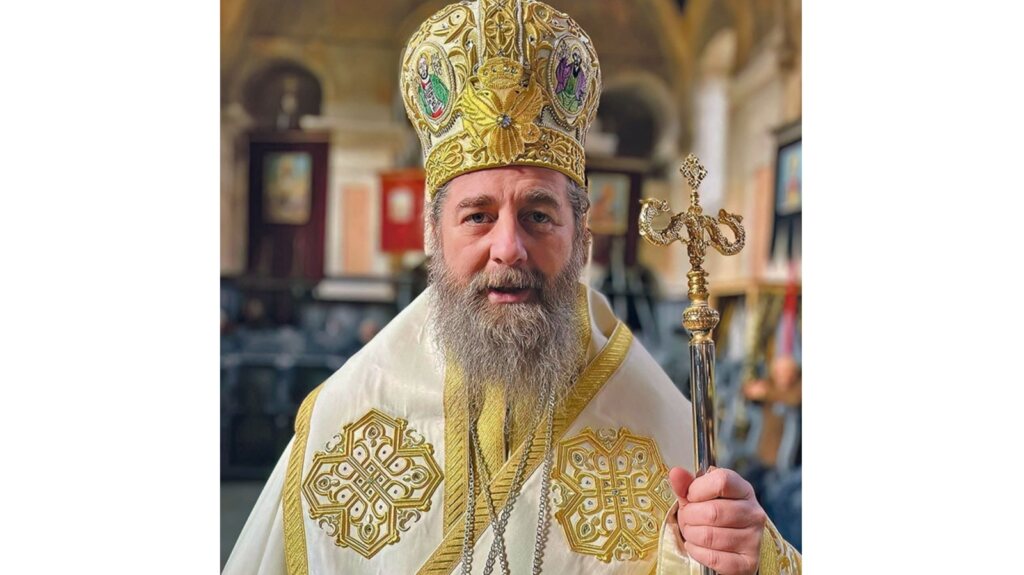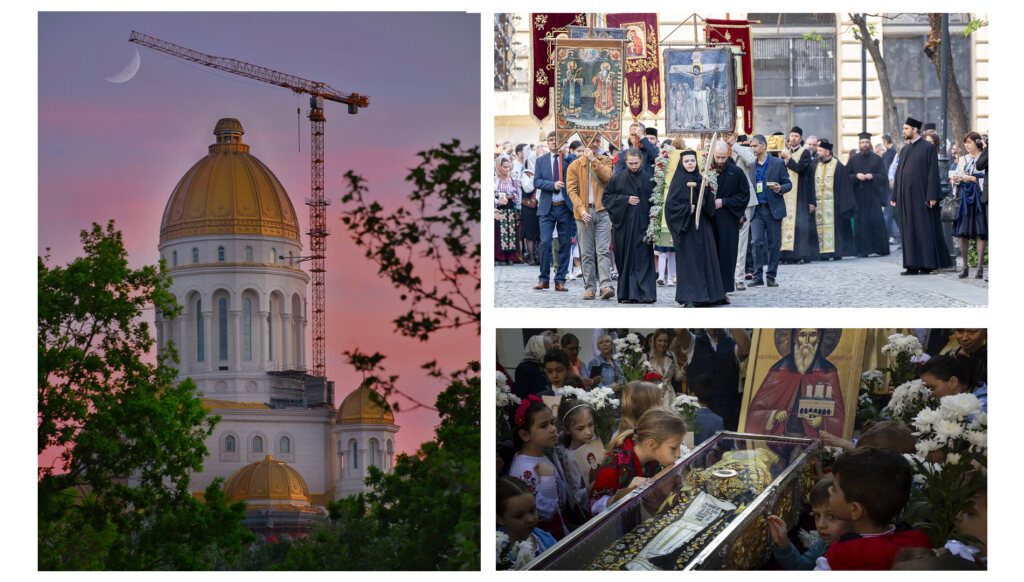In the sermon delivered on 4 November 2012, the 22nd Sunday after the Pentecost, at the chapel of “Saint Gregory the Enlightener” His Beatitude Patriarch Daniel emphasised the teachings of the Evangelical pericope of Saint Luke, chapter 16:19-31, which presents the example of the merciless rich man and of the poor Lasarus.
The text shows us, first of all that after the death of the body there is a life of the soul, the Patriarch of Romanian said.
“The human soul continues to exist after the death of the body, its conscience is enlightened getting rid of the body’s matter, and can communicate, beyond the terrestrial existence, with other souls. We see that after death the soul is aware of its state and can make the difference between the misfortunate existence of the hell and the happy existence of the paradise”, showed His Beatitude, as Trinitas Radio station informs us.
The same evangelical text also shows that wonders like the resurrection from the dead of a man with the body and his return to the world are not enough for changing the decayed behaviour. What can change it is the prayer and repentance which resurrect the soul from the death of sin, also added the Primate of the Romanian Orthodox Church.
“It is not the wonder of the resurrection of the dead that must be looked for, but the resurrection of the soul from the death of the sin as separation from God through the infringement of the will of God”.
“We can see in this Gospel that after the passing away from the earthly life the soul of every human feels joy if it has accomplished the will of God in its lifetime, just as the soul of poor Lasarus. The Holy Fathers of the Church interpreted the flames of the hell as a permanent remorse of the conscience for the bad things man committed in his life or for the good that he could have done but he did not. In other words, the fire of hell is not a material one, but the vacuum or the pain of the vacuum, of man’s dissatisfaction as a being who loves God and his fellow beings. The spiritual vacuum which is turned into a fire flame in the sense of remorse is the lack of merciful love in the soul. Those who had merciful love in their souls during their lifetime can come close to the merciful God together with the righteous who were merciful and resembled God. But if man did not gather merciful love in his soul during his lifetime on the earth he cannot feel the joy and peace of the soul in the life beyond the grace”, His Beatitude explained.
“Yet, it is surprising that this example of the merciless rich man and poor Lasarus does not speak of the bad deeds of the rich man or of the good deeds of the poor man. In general, we know that those who did bad deeds go to hell and those who did good deeds go to heaven. But here is complete silence. We are not told for what bad deeds the rich man went to hell, neither for what good deeds the poor man went to heaven, which means that the judgement was not done according to the deeds, but to the spiritual state of the soul the moment it passed away from this world. The spiritual state of the rich man was completely different from the spiritual state of the poor man. We see the lack of gratitude of the rich man for the gifts received from God, for the gift of life; the riches that the rich man had should have urged him to be grateful to God. The neglect and mercilessness towards the poor Lasarus shows that his spiritual state shows that his spiritual state was a self-sufficient one, a selfish existence, individualistic, based on himself and this is why the hell begins in the man’s soul ever since his lifetime on the earth as existence in isolation, in loneliness, in selfish self-sufficiency. The hell is first of all a spiritual stare, just like heaven, but hell is not a positive spiritual state, but one of spiritual vacuum. Thus, the spiritual state of the rich merciful man was a decayed one. He spiritually decayed through lack of gratitude, neglect and mercilessness and lowered his soul into the material state and this why the moment the body went into the grave the soul went to hell too, because the merciful rich man became inhuman or sub-human through neglect, under the level of the natural existence of the man created in the image of the merciful God.
Poor Lasarus had no material goods, but he enriched his soul through much patience with hope in God, through much lowliness, and not blaming others, neither the merciless rich man, and not rebelling. He has never rebelled or said: “God, why I suffer and that man is happy?” or “Why I am sick and that man is in good health?” He made his soul brilliant and full of virtues through much lowliness and silence in sufferance and loneliness”.
Next Sunday it is the 25th Sunday after the Pentecost in the Orthodox Church”.






